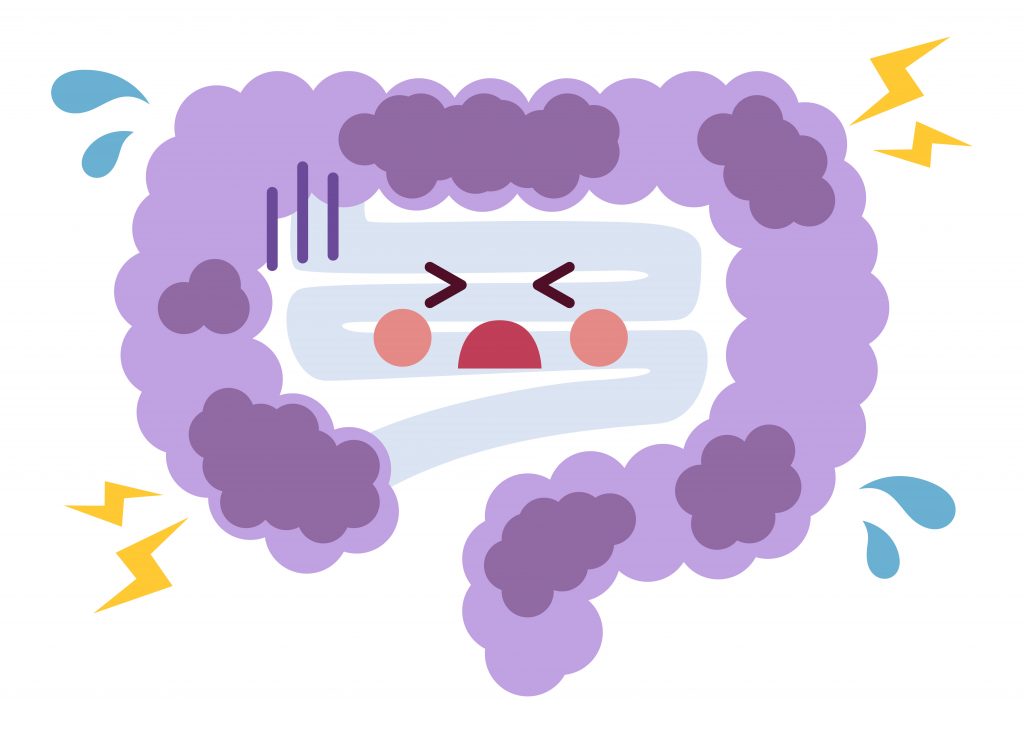Constipation: What YOU Should Know

What is constipation?
Constipation is common and generally described as irregular bowel movements or difficulty in pooping.
If you’re experiencing one or more of the following symptoms, you could be constipated 1:
- Straining to poo
- Lumpy or hard stools
- Feeling of incomplete evacuation
- Fewer than three bowel movements per week
Note that you could be suffering from chronic constipation if you’re experiencing at least two symptoms of constipation for more than three months or even years 2.
How does constipation happen?
Normally, when food waste (stools) moves through the large intestine, water will be absorbed by the intestinal lining, making the stool solid.
However, when the intestinal movements are slow and sluggish and the stools move through the intestine too slowly, resulting in too much water being absorbed and stools become hard and lumpy.
People of all ages may experience constipation. There are certain conditions that could slow down intestinal movements and increase the risk of constipation 3:
- Not taking enough water/fiber
- Physically inactive
- Taking certain medications/supplements
- Pregnancy
- Older age
- Gastrointestinal disorder such as Irritable bowel syndrome
Can constipation lead to any health problems?
There are few complications that could happen if you don’t have smooth and regular bowel movements, which include 4:
- Haemorrhoids
- Anal fissures (Tears in skin around the anus)
- Rectal bleeding
- Rectal prolapse
Besides that, studies also showed that prolonged infrequent bowel movement is associated with an increased risk of colorectal cancer 5.

How to manage constipation?
You may relieve symptoms of mild constipation by making changes to your diet and lifestyle by:
- Eating a diet rich in fibre: 25g fiber per day
- Staying hydrated: up to 1.5-2.0L per day
- Exercising regularly
- Going to the toilet when there is an urge, don’t delay6
However, for chronic constipation, laxatives may be required to treat the condition 7.
All laxatives have different effects in helping you to pass stools. You should choose the laxative based on your symptoms and needs so that the laxative is effective to treat your condition. It is advised to take the laxative that6
- Softens the stools if you have symptoms of hard stool
- Is safe for long-term basis if you’re required to take laxatives for longer time due to a medical condition
Reference
- World Gastroenterology Organization Global Guidelines. (2010). Constipation: A Global Perspective. Retrieved from http://www.worldgastroenterology.org/guidelines/global-guidelines/constipation/constipation-english
- National Institute of Diabetes and Digestive and Kidney Diseases. Symptoms and Causes of Constipation. [Online]. Available from: https://www.niddk.nih.gov/health-information/digestive-diseases/constipation/symptoms-causes [Accessed 16th Oct 2020]
- Johns Hopkins Medicine. Constipation. Available from: https://www.hopkinsmedicine.org/health/conditions-and-diseases/constipation [Accessed 16th Oct 2020]
- Stanford Health Care. Constipation Cause. [Online]. Availlable from: https://stanfordhealthcare.org/medical-conditions/primary-care/constipation/complications.html [Accessed 26th June 2019].
- Kojima M et al. Bowel Movement Frequency and Risk of Colorectal Cancer in A Large Cohort Study of Japanese Men and Women. British J of Cancer. 2004; 90, 1397 – 1401
- NHS inform. Constipation. [Online]. https://www.nhsinform.scot/illnesses-and-conditions/stomach-liver-and-gastrointestinal-tract/constipation#symptoms-of-constipation [Accessed 26th June 2019].
- Petticrew M et al. Effectiveness of Laxatives in Adults. Quality in Health Care. 2001; 10:268-273
Related Products
-
 Forlax 10g Sachet 20's RM43.80
Forlax 10g Sachet 20's RM43.80





